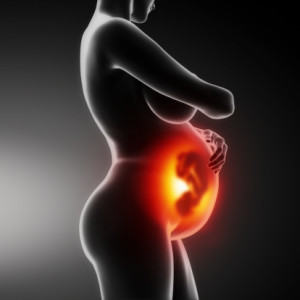Midwife’s Lack of Training Allegedly Leads to Baby’s Death
 Home births attended by midwives are on the rise in the U.S. However, a lack of medical training for some of these birthing attendants is putting mothers and babies at risk.
Home births attended by midwives are on the rise in the U.S. However, a lack of medical training for some of these birthing attendants is putting mothers and babies at risk.
Whereas Certified Nurse Midwives (CNMs) hold degrees in nursing and midwifery and frequently work in hospitals or under the supervision of physicians, Certified Professional Midwives (CPMs) need only a high school diploma and an apprenticeship period before they take the certifying exam. Despite their lack of training and supervision, CPMs deliver almost half (43%) of the babies born at home in the U.S.
Recent studies suggest that delivery by CPMs dramatically increase the rate of infant deaths.
Danielle Yeager learned of these risks the hard way when her first born child died shortly after delivery, allegedly the result of negligent care provided by the CPM she had hired to assist in her home birth.
According to Yeager’s account, her CPM Christy Collins’ insistence on waiting to take a trip to the hospital in an effort to have a successful home birth resulted in a crucial delay in care and the otherwise preventable death of her son. Yeager filed a civil suit against Collins for malpractice and wrongful death in early 2015.
Midwife’s delay results in a baby’s preventable death
Yeager decided on a home birth with a midwife after off-putting visits to local hospitals and meetings with physicians. She was impressed with Collins’ credentials and manner and hired her after the first meeting. However, the ultimate outcome of their engagement was the death of Yeager’s infant son.
In Yeager’s account, Collins decided to adopt a wait and see attitude after a test taken 2 weeks after her due date confirmed that she had very little amniotic fluid. Normally such test results would trigger an immediate trip to the hospital for labor induction. But Collins counseled Yeager to drink more water and then asked for advice from another midwife on-line the next morning. Only when Collins detected that the baby’s heartbeat had slowed did she call the back-up physician, who then told her to drop everything to get to the hospital for an induction.
At the hospital, doctors performed an emergency C-section. The baby had inhaled his own meconium, a sign of fetal distress, and doctors attending at the time believe that his heart may have been failing for days. T
he baby – later named Gavin – soon stopped breathing. After 47 minutes of attempted resuscitation, the baby was pronounced dead.
Midwife certification lacking
Yeager was soon to learn that the woman she trusted to deliver her baby had been charged with practicing medicine without a license in California, fined $10,000, and banned from practicing midwifery for three years.
Collins then simply packed up and moved to Nevada, a state where midwifes are not regulated and governed by any safety regulations whatsoever. Nevada is one of 11 such states. Unfortunately, such lack of regulations means that Collins actually broke no laws in Nevada and could not even be extradited to California to face trial in a criminal court.
Shortly after Yeager filed her civil suit against Collins, Collins filed for bankruptcy, limiting her ability to see justice done.
“When someone handles you with such special care, you really think you’re going to be OK,” Yeager explained. “But [midwives] really just have no idea. They don’t know how to recognize emergencies. They don’t have the tools. They don’t have the knowledge. They’re con artists.”

 Resources
Resources
 Resources
Resources

